
Disaster Reduction and Risk Management
Research Hub
Research focused on response to disasters (both natural and human-induced) requires intensive collaborative research. The Government’s allocation of $4.5million in its Wellbeing Budget to establish the National Emergency Management Agency (NEMA) in 2019, and the refunding of the Quake CoRE and Te Punaha Matatini is indicative of the priority given to disaster response. In 2019, the Christchurch mosque shootings, the Auckland measles outbreak, the Pigeon Valley Fire, and White Island volcanic eruption required different types of rapid responses at different magnitudes. In 2020, along with the rest of the world, New Zealand commenced an unprecedented disaster response to the COVID-19 pandemic, in addition to rapid responses to the scrub fires in Canterbury, the Southland flooding, and the Lake Ōhau fires. Additionally, climate change is likely to bring more natural disasters and sea level rise-related risk for coastal communities.
Disaster response often involves a complex range of factors such as emergency medical procedures, disaster zone assessment, relocation, emergency shelter, next-of-kin contacts, recovery support (infrastructural, financial, and psychological), public information, donations and funds management, and legal matters. Closely connected to disaster response is risk management which includes risk preparedness and mitigation. As explained by the Minister of Civil Defence, Hon Kris Faafoi, the establishment of NEMA, replacing the Ministry of Civil Defence & Emergency Management, was in light of a need for a better and more community-centred emergency management system that is prepared for all hazards, risks and emergency situations that New Zealand might face[1].
Disaster response is a multifaceted area that often involves speed in decision-making. Such decision-making is likely to be more effective when it is research-informed and technically feasible. The Disaster Response and Risk Reduction Research Hub at the University of Auckland provides a platform that amalgamates research expertise from multiple disciplines. The hub includes engineering expertise (e.g. infrastructure safety, technology), public health expertise (e.g. preventative medical interventions, emergency treatment), education and training expertise (e.g. frontline staff capacity building), communications expertise (e.g. public understanding of risk adaptation and response, media communications), social science expertise (to identify the production of vulnerabilities, address inequities in disaster responses and to help build resilience), social psychology expertise (to inform post-disaster support), legal expertise (e.g. to address legal issues such as liability risk[2], post-disaster legislative changes[3]) and policy expertise (e.g. preparing national guidelines and prevention frameworks).
Our preliminary search for collaborators found that our university currently has staff members fitting within many of these areas of expertise. Our aim is to build the resource hub, working on collaborative projects in this field.
[1] Birnie, L. (2019). New funding to put people at the heart of NZ’s emergency management system. https://www.beehive.govt.nz/release/new-funding-put-people-heart-nz%E2%80%99s-emergency-management-system
[2] Leider, J. P., DeBruin, D., Reynolds, N., Koch, A., & Seaberg, J. (2017). Ethical guidance for disaster response, specifically around crisis standards of care: A systematic review. American Journal of Public Health, 107(9), e1-e9.
[3] Rotimi, J. O., Wilkinson, S., & Myburgh, D. (2011). Legislation for Effective Post-Disaster Reconstruction: Cases from New Zealand. In D. Amaratunga & R. Haigh (Eds.), Post-Disaster Reconstruction of the Built Environment (pp. 151-174). West Sussex, UK: Wiley-Blackwell; Rotimi, J. O. B., & Wilkinson, S. (2014). Improving environmental management legislation to facilitate post-disaster reconstruction. International Journal of Disaster Resilience in the Built Environment, 5(1), 23-37.
Research Hub Members
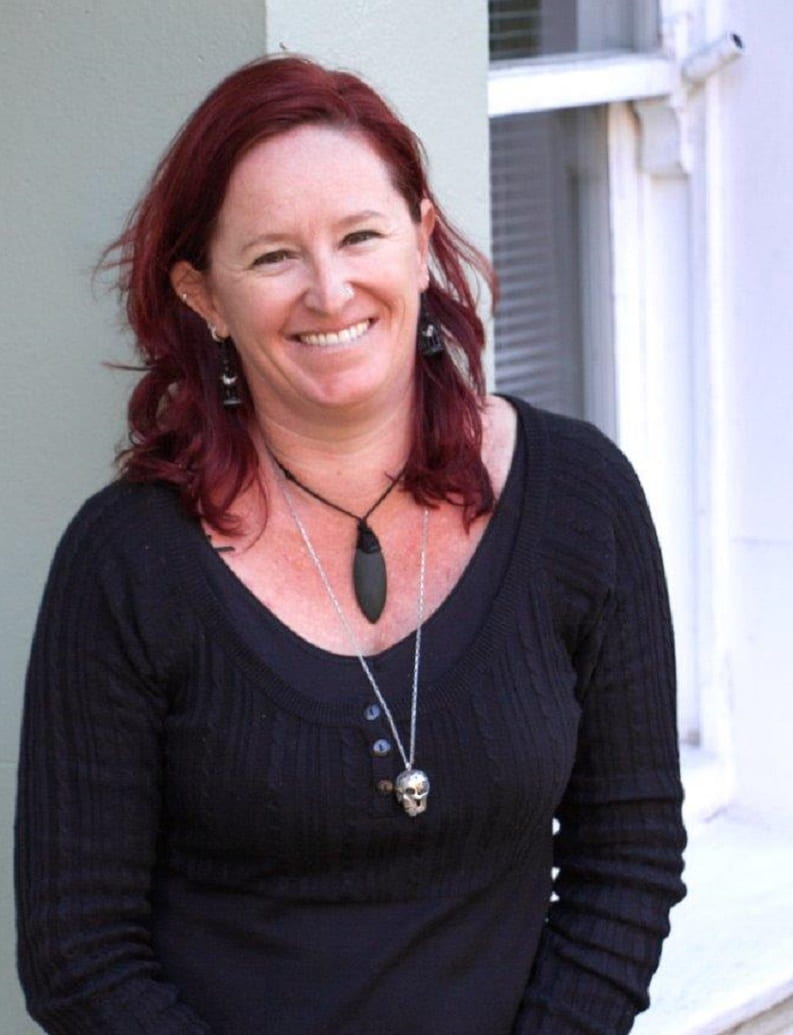
Dr Suzanne Woodward
Co-ordinator
Suzanne is the Associate Director Research Impact at the Public Policy Institute at the University of Auckland. Her areas of expertise include policy communication, technology regulation and equity.

Associate Professor Steve Matthewman
Primary Investigator
My current research project is the three-year Royal Society of New Zealand Marsden-funded work ‘Power Politics: Electricity and Sustainability in Post-Disaster Ōtautahi (Christchurch)’ with Hugh Byrd (Unitec) and Christine Kenney (Massey University). We interpret Christchurch as a laboratory for an urban world facing unprecedented environmental pressures. The broad focus of this research is on how we build sustainability into the city. The narrow focus is on the place of renewable energy in this process. A major part of this work involves considering the barriers to “building back better”. Among other things, I am interested in the politics of built form, the sociology of energy and infrastructures, and the sociology of disasters.
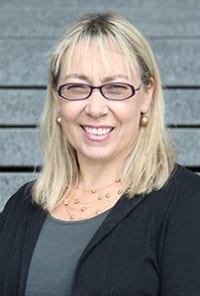
Dr Bridgette Sullivan-Taylor
Bridgette’s research focuses on managing uncertainty and developing organizational resilience and hence, she has been working with the UK Cabinet Office Civil Contingencies Secretariat since 2008 looking at establishing public-private partnerships in the context of extreme events such as terrorism, natural disasters, economic recessions and pandemics. Her research has informed the development of UK policy as an advisor and through events she has held at the House of Commons and Number 10 Downing Street focused on national security as well as critical national infrastructure related concerns.
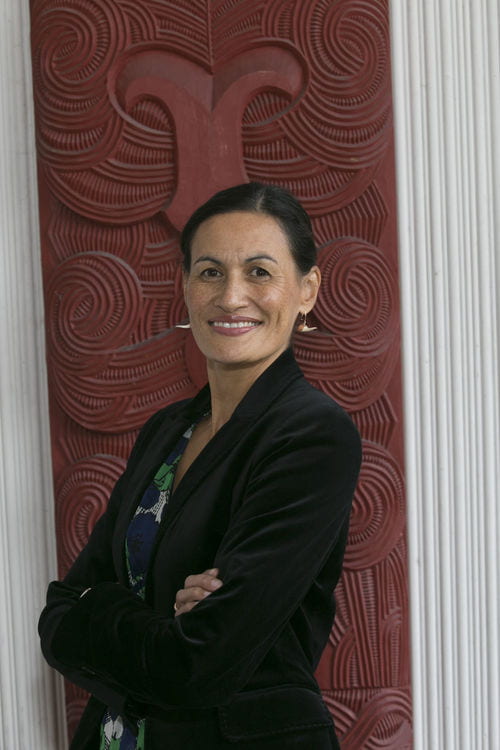
Associate Professor Marama Muru-Lanning
I am the Director of the James Henare Māori Research Centre. My research is dedicated to transdisciplinary research with Māori communities that prioritises equity. As a social anthropologist I focus on the cultural specificity of tangata whenua groups and their unique sense of place and belonging in Aotearoa. Over the past five years I have also developed a passion and new approaches for researching kaumātua wellbeing with colleagues from the James Henare Māori Research Centre. My professional expertise includes: building research relationships with Māori communities, environmental anthropology, commodification, privatisation, knowledge production, kaumātua mauri ora and hauora and Chilean intercultural politics. What distinguishes me internationally as a social scientist is my specialisation in four interrelated areas of research:
- Water;
- Human-environment relationships;
- Mātauranga;
- Transdisciplinary research methods.
I have research collaborations with other University of Auckland faculty teams which include projects with Civil Engineering, Robotics and Infrastructure.
I am from Tūrangawaewae Marae and whakapapa to Waikato, Ngāti Maniapoto and Ngāti Whātua.

Dr Dan Hikuroa
Dan’s research addresses fundamental foundations and applications of knowledge, particularly with respect to integrating mātauranga Māori and science. Dan explores the similarities and differences between indigenous knowledges and science, the underpinning ontologies (ways of being), and the epistemologies (ways of knowing). His research includes how concepts of mauri contribute to ideas about “life”, kinship as practical ontology, how indigenous concepts can be integrated with techno-scientific rationales to imagine new futures for our rivers and waterways, and Māori concepts of time, space and the “universe”.
Dan has undertaken many projects including co-writing the 2014 State of the Hauraki Gulf Environment Report, geothermal developments, planning river and catchment restorations, co-writing iwi environmental management plans, and industrial waste rehabilitation. Dan is a member of Ngā Kaihautū Tikanga Taiao, Statutory Advisory Committee to the Environmental Authority, Watercare Environmental Advisory Group, a hapū representative member on both the Waitomo Caves Management Committee and Waitomo Caves Environmental Advisory Group, and an independent scientific advisor for various hapū, iwi and ahu whenua groups. He brings both a Māori worldview and a scientific approach to the research centre in our exploration into the origins of the universe, life and ultimate reality.
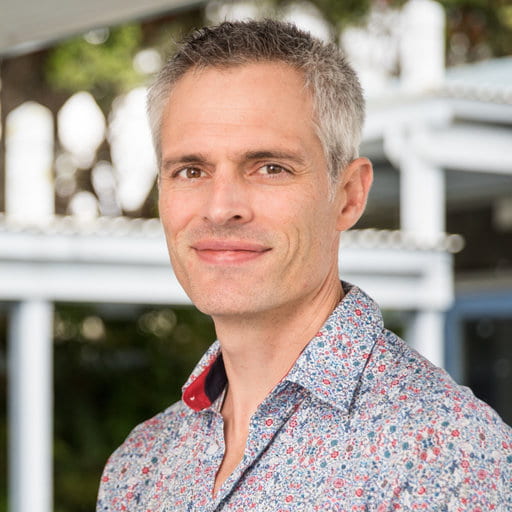
Associate Professor Jay Marlowe
Associate Professor Jay Marlowe’s research focuses on refugee studies and settlement futures as it relates to migration policy, role of technologies and disaster risk reduction. He is co-director of the Centre for Asia Pacific Refugee Studies, which focuses on responding to conflict and climate induced displacement. In 2019 he became a Rutherford Discovery Fellow to pursue a 5 year research programme related to refugee settlement trajectories. As a social worker and former visiting fellow with the Refugee Studies Centre at Oxford University, he has worked with refugee communities as a practitioner and researcher publishing more than 70 peer reviewed papers.
Jay’s primary area of research interest focuses upon refugee settlement, social inclusion and ways that migrant communities can participate within civil society.
He has secured (as principal or associated investigator) numerous external grants worth more than $3 million. These activities include collaborations across Europe, Australasia and North America. He is a current recipient of a Marsden fast start which examines how refugees practise transnational family and friendship through social media. Other major collaboration include European funded project on crisis translation and the National Science Challenges that focuses on societal resilience to disasters within Auckland. In 2016, he was a visiting scholar at the Natural Hazards Center at the University of Colorado.
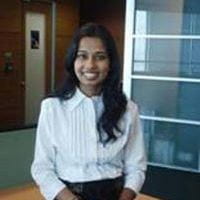
Dr Dulani Jayasuriya
Prior to her return to academia Dulani worked at BlueCrest Capital LLP as a Quantitative Research Associate/Trader in London. Before that she held positions as a Quantitative Research Associate at Frontpoint Partners US LLP and Moody’s Analytics.
Dulani holds a Bachelor of Science (Honours, Top of her class) from University of London in Mathematics, Computing and Statistics, an MPhil in Financial Engineering from Cambridge University and a PhD in Finance from National University of Singapore.
Research Areas: Big Data, International Banking, Social Media, Applications of Machine Learning in Finance, Applying deep learning techniques for Socio-Economic problem solving, Blockchain applications in Finance, Crypto currencies.

Dr Yang Zou
Yang started working at the Department of Civil and Environmental Engineering (CEE) in the University of Auckland in 2018. His research lies in the inter-disciplinary area of construction informatics and automation, focused on applying digital technologies and robotics, e.g. Building Information Modelling (BIM), Unmanned Aerial System (UAS), Artificial Intelligence (AI), Smart Sensing and Visualisation, throughout the lifecycle of complex building and large-scale infrastructure systems. His ultimate research goal is to pursue a smarter, safer and better built environment.
He has collaborated closely with industry leaders (e.g. ARUP) and government departments (e.g. Auckland Council, UK Health and Safety Executive) for research, and has more than 20 academic publications in internationally leading journals and conferences. To date, he has secured over $0.48 million research funding as PI/Co-PI/AI from Building Research Association of New Zealand (BRANZ), NZ Centre for Earthquake Resilience (QuakeCoRE), BIM Acceleration Committee (BAC), National Science Challenge (NSC)-Science for Technological Innovation (SfTI), University of Auckland and industry partners.
Research Areas: Rapid building/infrastructure inspection and assessment using UAS and AI, Automated design, manufacturing and lifecycle analysis for prefabricated buildings, Construction robotics, Smart cities
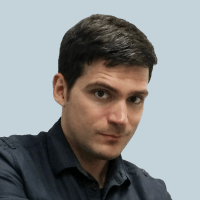
Dr Minas Liarokapis
Dr. Liarokapis is a Senior Lecturer in the Department of Mechanical Engineering and director of the New Dexterity research group. Previously, he was a Postdoctoral Associate in the GRAB Lab at Yale University working with Prof. Aaron Dollar.
He is interested in equipping robots with dexterous manipulation capabilities and enabling humans to regain their lost dexterity or augment their performance, modeling, designing and controlling new robotics and bionics hardware. He is the founder of the OpenBionics initiative and a co-founder of OpenRobotHardware and HandCorpus.
During his postdoctoral training, his research focused on hybrid schemes that combine analytical models, constrained optimization methods and machine learning techniques for simplifying robust grasping, dexterous, in-hand manipulation and haptic object identification using adaptive robot hands. During his PhD studies, he worked under the supervision of Prof. Kostas Kyriakopoulos in the Control Systems Lab and his research focused on EMG-based decoding of human motion and intention for the control of robotic and prosthetic devices in structured and dynamic environments.
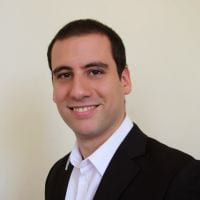
Dr Enrique del Rey Castillo
Enrique obtained a Master of Engineering on structural engineering at the Polytechnic University of Madrid in Spain, his home town. He then joined the Structural Analysis of Historical Constructions (SAHC) master programme to learn more about advanced structural design, seismic actions and the behaviour of existing heritage buildings. This master is co-jointly taught at two universities in Europe, which brought him to live in Czech Republic and Portugal. His experience with the research project within the master programme motivated him to enrol at the University of Auckland to complete a PhD in seismic strengthening of concrete structures with Fibre Reinforced Polymers (FRP).
Enrique is now a lecturer at the University of Auckland, while holding a Concrete New Zealand Fellowship. He is dedicated to prepare the next generation of engineers to excel in reinforced concrete design and to further enhance the industry’s knowledge and use of reinforced concrete.
His broad area of interest is in reinforced concrete technology and structures, always trying to find easy and simple solutions to problems that engineers encounter in their profession. Developing new products and reducing the environmental impact of the construction industry are also of his interest.
Research Areas: Seismic strengthening of existing RC columns with Fibre Reinforced Polymers (FRP), Strengthening of shear deficient RC bridge girders with FRP, Assessment and strengthening of hollow core floors, Seismic shear behavior of post-installed steel anchors, Incorporating plastic waste in construction materials

Dr Alice Chang-Richards
Alice is a Senior Lecturer with the Department of Civil and Environmental Engineering at the University of Auckland. She is also a visiting scholar at Purdue University (Construction Engineering and Management SPARK Laboratory) and at University of Colorado, Boulder (Department of Civil Engineering) under the New Zealand James and Hazel Lord Fellowship. Her main research interests include disaster risk reduction, climate change adaption, construction technology, construction automation, smart cities and smart housing.
Alice has background in civil engineering and disaster risk reduction – extensive disaster field experience and knowledge in Indonesia, China, Australia, New Zealand, Japan and the USA. She has also provided consulting for the Asia Pacific Economic Cooperation (APEC) Secretariat in 2013, for the Building Research Association of New Zealand (BRANZ) in 2015 and served as a consulting engineer working for Care International, Canada in its Post-Tsunami Housing Reconstruction Programme, Banda Aceh, in 2008.
Research Areas: Construction 4..0, Construction technology, Smart cities and smart housing, Disaster Risk Reduction, Disaster simulation

Associate Professor Luke Goode
Luke researches, teaches and writes about new media and communication technologies. He studies the opportunities and the risks they open up for us as a society and as individuals. In particular, his work explores the implications of new technologies for the public sphere. He is also interested in the ways communication technology features in popular visions of the future and how these visions shape the public imagination about the kind of society we want or expect to live in. His research is currently focused on popular debates around the future of artificial intelligence.
Research Areas: New media technologies, AI and imagined futures, critical futures
Peter Simpson
Peter is a filmmaker and Professional Teaching Fellow in Media Studies.
Henry Frear
Henry is studying Law and is a Research Assistant for the DRRM Hub.
